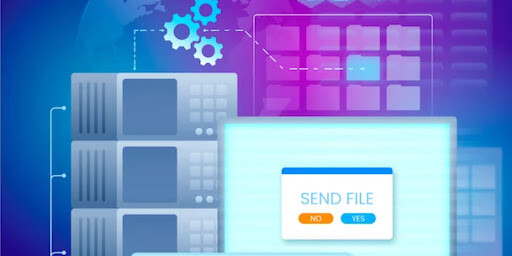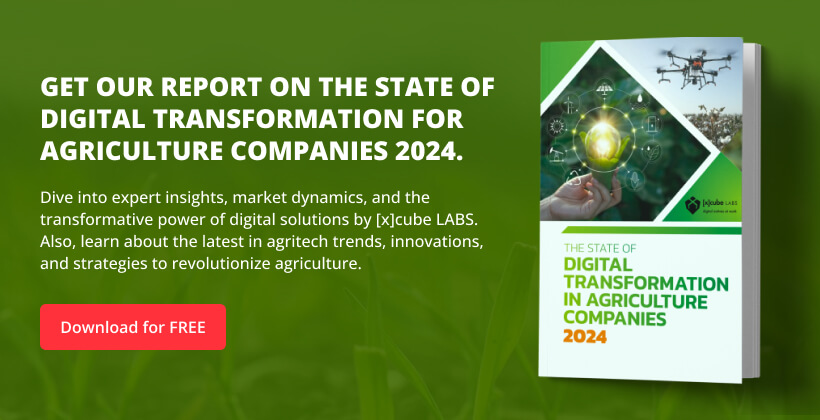Kubernetes for Big Data Processing.

Introduction
The capacity to process and analyze enormous amounts of data effectively is crucial in today’s digital and data-driven environment. Big data has established itself as a fundamental tool for decision-making, providing knowledge that propels companies and organizations to new heights.
However, extensive data management and processing can be complex, requiring much computer power and complex orchestration.
Let’s introduce Kubernetes, the open-source technology for container orchestration that has transformed the way we manage and deploy applications. This article will examine the relationship between big data and Kubernetes, highlighting how this innovative pair changes the face of data processing.
Kubernetes for big data promises to be a game-changer, enabling scalability, flexibility, and efficiency like never before, whether you’re an experienced data engineer or just starting to explore this intriguing subject.
A. Definition of Kubernetes: At its core, Kubernetes is an open-source container orchestration platform designed to simplify the deployment, scaling, and management of containerized applications. It acts as a robust and adaptable system that automates the intricate task of container orchestration, making it easier for developers and operators to manage their applications seamlessly.
B. Significance of Big Data Processing: Big Data has become the lifeblood of decision-making in today’s data-driven world. It encompasses vast and complex datasets with invaluable insights, whether customer behavior analysis, predictive modeling, or improving operational efficiency. Big Data processing allows organizations to extract meaningful information from these datasets, unlocking new opportunities and staying competitive in their respective industries.
C. The Need for Kubernetes in Big Data Processing: When handling Big Data, the scale and complexity of the operations involved can be staggering. This is where Kubernetes steps in as a game-changer. Kubernetes provides several vital advantages for Big Data processing:
- Scalability: Kubernetes enables the automatic scaling of resources, ensuring that Big Data workloads can adapt to changing demands, whether processing a massive dataset or handling a sudden influx of users.
- Resource Optimization: Kubernetes allocates resources efficiently, ensuring that compute and storage resources are used optimally. This translates to cost savings and improved performance.
- Fault Tolerance: Due to the volume of data, Big Data processing can be prone to failures. Kubernetes offers fault tolerance and self-healing capabilities, ensuring that data processing jobs can continue despite hardware or software failures.
- Flexibility: Kubernetes supports many tools and frameworks commonly used in Big Data processing, such as Apache Spark, Hadoop, and Flink. This flexibility allows organizations to choose the best tools for their data processing needs.
- Portability: Kubernetes abstracts away the underlying infrastructure, making migrating Big Data workloads across different cloud providers or on-premises environments easier.

Big Data Processing
Unveiling the Challenge: Big Data refers to datasets that are too large, complex, and fast-moving for traditional data processing systems to handle efficiently. These datasets may include structured and unstructured data from various sources, such as social media, IoT devices, and transactional databases. Analyzing Big Data holds immense potential for gaining valuable insights but also presents significant storage, processing, and scalability challenges.
The Role of Kubernetes in Big Data Processing:
Kubernetes, often called K8s, is an open-source container orchestration platform designed to automate containerized applications’ deployment, scaling, and management. While Kubernetes has primarily been associated with microservices, its capabilities are equally beneficial for Big Data processing. Here’s how Kubernetes optimizes Big Data workflows:
- Resource Management: Kubernetes efficiently allocates and manages resources, ensuring that Big Data applications have the computing power and storage they need to process vast datasets.
- Scalability: Big Data workloads can vary in size and complexity. Kubernetes enables automatic scaling of resources based on demand, ensuring that your processing clusters can handle any workload, no matter how large.
- Fault Tolerance: Big Data processing is sensitive to hardware failures. Kubernetes ensures high availability by automatically replacing failed containers or nodes, reducing downtime and data loss.
- Containerization: Kubernetes leverages containerization technology like Docker to encapsulate Big Data applications and their dependencies. This simplifies deployment and allows for consistent environments across different processing stages.
- Portability: Kubernetes promotes portability across different cloud providers and on-premises environments, giving organizations flexibility in where they run their Big Data workloads.
- Automation: Kubernetes offers powerful automation capabilities, streamlining the deployment and management of Big Data processing clusters. This reduces the operational overhead and frees up resources for data analysis.
Common Big Data technologies
Explore the essential Big Data technologies, such as Hadoop, Spark, Kafka, and Elasticsearch, and discover how they can be optimized for seamless integration with Kubernetes, a leading container orchestration platform.
- Hadoop: Hadoop’s distributed file system (HDFS) and MapReduce processing can be efficiently managed within Kubernetes clusters to scale your Big Data processing needs. Discover best practices for deploying Hadoop components like HDFS, YARN, and Hive on Kubernetes.
- Spark: Apache Spark and its data processing capabilities. Understand how to leverage Kubernetes to dynamically allocate resources, scale Spark workloads, and optimize data analytics pipelines, enabling real-time data processing and machine learning at scale.
- Kafka: Apache Kafka, a decisive event streaming platform, seamlessly integrates with Kubernetes for real-time data streaming and processing. Discover containerization strategies and deployment techniques to ensure high availability, scalability, and fault tolerance in your Kafka clusters.
- Elasticsearch: Elasticsearch, a distributed search and analytics engine, can be optimized for Kubernetes environments to efficiently index, search, and visualize vast amounts of Big Data. Discover containerization methods, resource management, and monitoring solutions to enhance Elasticsearch’s performance.

Kubernetes for Big Data
A.Benefits of using Kubernetes for Big Data
1. Scalability and resource allocation
2. High availability and fault tolerance
3. Simplified management
B. Kubernetes for containerized Big Data applications
- Containerization of Big Data Tools: The convergence of Big Data and Kubernetes begins with containerizing powerful data processing tools like Hadoop and Spark. Organizations can effortlessly deploy, scale, and manage their Big Data workloads by encapsulating these traditionally complex and resource-intensive applications into lightweight, portable containers.
- Orchestration of Containers with Kubernetes: Kubernetes, often hailed as the orchestrator of the modern era, takes center stage in this discussion. It acts as the maestro, conducting the symphony of containerized Big Data applications.
Kubernetes provides a unified platform for orchestrating containerized workloads, ensuring high availability, fault tolerance, and resource allocation. Kubernetes operators are designed for big data, empowering organizations to automate complex tasks and achieve operational excellence.
C. Case studies of Kubernetes in Big Data
Case Study 1: Optimizing Big Data Processing with Kubernetes
Industry: Financial Services
Challenge: A leading financial services firm needed help efficiently processing and analyzing vast amounts of financial data from various sources, including market feeds, transactions, and customer interactions. Their existing infrastructure needed help to handle the growing data volume and complexity.
Solution: The firm implemented a Kubernetes-based solution to optimize Big Data processing. They deployed Apache Hadoop and Apache Spark clusters on Kubernetes to distribute and process data across a dynamic and scalable containerized environment. This allowed them to efficiently manage resource allocation, scaling, and fault tolerance.
Results: With Kubernetes orchestrating their Big Data workloads, the financial services firm achieved:
- Scalability: The ability to quickly scale their clusters up or down based on demand, ensuring efficient resource utilization and cost savings.
- Fault Tolerance: Kubernetes helped automate failover and recovery processes, reducing downtime and ensuring data consistency.
- Resource Optimization: Resource allocation and management became more efficient, reducing infrastructure costs.
- Improved Time-to-Insight: Data processing times decreased significantly, enabling analysts to access real-time insights and make more informed decisions.
Case Study 2: Kubernetes-Powered Data Lake for E-commerce
Industry: E-commerce
Challenge: A rapidly growing e-commerce platform was drowning in data generated from user interactions, transactions, and inventory management. Their traditional data warehousing solutions couldn’t cope with the scale and complexity of this data.
Solution: The e-commerce company decided to build a modern data lake architecture using Kubernetes. They utilized Kubernetes to deploy containerized data processing and storage components, including Apache Hadoop, Apache Hive, and Apache Kafka. This approach allowed them to efficiently ingest, process, and store large volumes of data in real-time.
Results: By implementing Kubernetes in their Big Data strategy, the e-commerce platform achieved the following:
- Scalability: Kubernetes enabled automatic scaling of data processing clusters, accommodating data volume and demand fluctuations.
- Data Ingestion and Processing Speed: The platform significantly reduced the time it took to ingest and process data, enabling faster decision-making and personalized customer experiences.
- Cost Efficiency: Kubernetes’ resource optimization capabilities helped reduce infrastructure costs by ensuring efficient resource allocation.
- Enhanced Data Quality: The platform could now process and analyze data more effectively, improving data quality and accuracy.
Case Study 3: Real-time Analytics for Healthcare with Kubernetes
Industry: Healthcare
Challenge: A healthcare provider wanted to harness the power of real-time data analytics to improve patient care and operational efficiency. They needed a solution to process and analyze massive amounts of patient data in real time.
Solution: Kubernetes was the foundation for their real-time Big Data analytics platform. They deployed Apache Kafka and Apache Flink on Kubernetes clusters to handle the data stream processing and analysis. Kubernetes facilitated the automatic scaling of these components based on the incoming data load.
Results: By leveraging Kubernetes for their Big Data analytics needs, the healthcare provider experienced:
- Real-time Insights: The platform provided real-time insights into patient data, enabling immediate clinical decisions and improving patient outcomes.
- Flexibility and Scalability: Kubernetes allowed the platform to seamlessly scale to handle increasing data volumes, especially during peak periods.
- Operational Efficiency: By automating cluster management and resource allocation, Kubernetes reduced operational overhead and costs.
- Data Security: Kubernetes’ built-in security features ensured that sensitive patient data was adequately protected.

Best Practices and Considerations
A. Tips for Optimizing Kubernetes for Big Data
- Resource Allocation and Scaling
- Dynamic Resource Allocation: Utilize Kubernetes’ dynamic resource allocation capabilities by defining resource requests and limits for your Big Data applications. It helps prevent resource contention and ensures efficient resource utilization.
- Horizontal Pod Autoscaling: Implementing Horizontal Pod Autoscaling (HPA) to automatically adjust the number of replicas based on resource metrics like CPU and memory utilization is crucial for handling varying workloads in Big Data processing.
- Node Autoscaling: Integrate Kubernetes with cloud providers’ autoscaling features to scale the underlying nodes as needed and ensure your cluster can handle large-scale Big Data workloads without manual intervention.
- Monitoring and Logging
- Prometheus and Grafana: Set up Prometheus to monitor Kubernetes and Big Data components. Use Grafana to create dashboards for real-time visibility into cluster and application performance.
- Centralized Logging: Implement centralized logging solutions like the ELK (Elasticsearch, Logstash, Kibana) stack or Fluentd to collect and analyze logs from Kubernetes and Big Data applications, aiding in debugging and troubleshooting.
- Custom Metrics: Define custom metrics for your Big Data applications to monitor specific performance indicators, allowing you to make informed decisions on scaling and optimization.
- Security Considerations
- RBAC Policies: Implement Role-Based Access Control (RBAC) to restrict access to sensitive resources within your Kubernetes cluster. Ensure that only authorized users and services have the necessary permissions.
- Network Policies: Define policies to control traffic flow between pods and enforce security rules. It is essential when dealing with sensitive Big Data workloads.
- Secrets Management: Use Kubernetes Secrets to store sensitive credentials and configuration data. Avoid hardcoding classified information in your application code or configuration.
- Pod Security Policies: Enforce Pod Security Policies to define security constraints for pods, ensuring that only pods meeting specified security requirements can run.
B. Choosing the Right Tools and Configurations
- Selecting Appropriate Big Data Components
- Compatibility: Choose Big Data components and frameworks that are compatible with Kubernetes. Examples include Apache Spark, Apache Flink, and Apache Kafka, which support native Kubernetes.
- Containerization: Whenever possible, containerize your Big Data applications to simplify deployment and management within Kubernetes.
- Data Storage: Consider storage options for your Big Data workloads, such as distributed file systems (HDFS, Ceph) or cloud-native storage solutions (AWS S3, Azure Blob Storage).
2. Configuring Kubernetes Clusters
- Cluster Sizing: Determine the size based on your Big Data processing requirements. Larger clusters may be necessary for handling extensive workloads.
- Node Labels and Taints: Utilize node labels and taints to segregate nodes for specific Big Data workloads, ensuring resource isolation and optimal performance.
- Persistent Volumes: Configure persistent volumes and persistent volume claims for your Big Data applications to ensure data durability and availability.
- Helm Charts: Leverage Helm charts to define and version your Kubernetes deployments. Helm simplifies the management of complex Big Data application configurations.

Conclusion
As a result, Kubernetes has emerged as a game-changing technology for Big Data processing, providing a scalable, adaptable, and effective answer to the challenging issues associated with handling enormous volumes of data.
Kubernetes offers a solid framework for orchestrating and managing the deployment of data processing applications as businesses struggle with the ever-expanding needs of Big Data workloads.
Kubernetes enables data engineers and scientists to concentrate on gleaning insights from data rather than handling the complexity of cluster administration by abstracting away the underlying infrastructure’s complexities.
Additionally, Kubernetes supports the easy integration of several data processing frameworks, such as Hadoop, Spark, and Flink, enabling businesses to create elastic and resilient data pipelines. This adaptability is crucial in the constantly changing world of big data, where new tools and technologies are continually developing.
But it’s essential to remember that while Kubernetes has many advantages, it also has drawbacks, such as a high learning curve and the requirement for careful planning and resource management.
Kubernetes for Big Data optimization requires a thorough understanding of both technologies, ongoing monitoring, and fine-tuning to guarantee optimum performance and financial viability.
In a world where data is the lifeblood of many businesses, harnessing the power of Kubernetes for Big Data processing is not merely an option but a strategic imperative. As organizations integrate these technologies and adapt to changing data demands, the synergy between Kubernetes and Big Data will undoubtedly drive innovation, unlock new insights, and pave the way for a data-driven future.
![Blog-[x]cube LABS](https://d6fiz9tmzg8gn.cloudfront.net/wp-content/uploads/2016/06/blog_banner.jpg)






